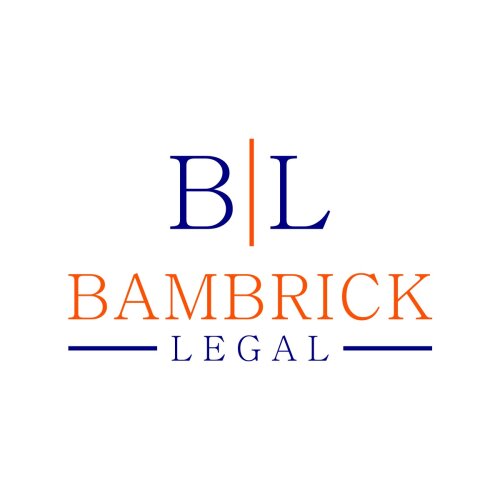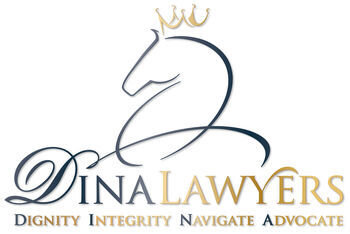Best Dependent Visa Lawyers in Australia
Share your needs with us, get contacted by law firms.
Free. Takes 2 min.
Or refine your search by selecting a city:
List of the best lawyers in Australia
About Dependent Visa Law in Australia
Australian Dependent Visas allow family members of visa holders in Australia to join them in the country for an extended period. Typically, these visas are applicable to spouses, partners, and children of the primary visa holder. The purpose of dependent visas is to maintain family unity while individuals work, study, or engage in other approved activities in Australia. There are several visa types, each with specific eligibility criteria, including partner visas, child visas, and subclass-specific dependent visas such as those linked to skilled, student, and work visas.
Why You May Need a Lawyer
Applying for a dependent visa can be a complex process, involving extensive documentation and adherence to strict eligibility criteria. Seeking legal assistance can be beneficial in various scenarios:
- Eligibility Assessment: A lawyer can help determine if you and your dependent(s) meet the eligibility criteria for a specific visa category.
- Documentation and Application: Legal guidance ensures accurate documentation, minimizing processing delays or rejections.
- Appeals and Rejections: If a visa application is rejected, a lawyer can provide representation in appeals or reviews.
- Changes in Circumstances: A legal expert can assist with visa amendments if there are significant changes in circumstances (e.g., employment status, marital status).
- Compliance and Legal Obligations: Lawyers can help ensure compliance with all visa conditions and Australian immigration laws.
Local Laws Overview
Australia’s immigration system is regulated by the Department of Home Affairs, which oversees visa applications and compliance. Key aspects relevant to dependent visas include:
- Visa Type and Conditions: Each dependent visa has specific conditions, such as work rights, duration of stay, and eligibility for public benefits.
- Sponsorship Requirements: The primary visa holder often sponsors dependents, with obligations that might include financial support and ensuring compliance with visa conditions.
- Health and Character Requirements: Dependents typically must meet certain health and character requirements as part of the visa application process.
- Biometric Data Collection: Applicants may need to provide biometric data as part of the security and identity verification process.
Frequently Asked Questions
What is a dependent visa in Australia?
A dependent visa allows the family members of a primary visa holder to live in Australia for the duration of the principal visa holder's stay.
Who qualifies as a dependent under Australian visa laws?
Generally, a dependent can be a spouse, de facto partner, or a child of the primary visa holder. Certain visas may also allow other relatives under specific conditions.
Can dependents work in Australia on a dependent visa?
Work rights for dependents vary depending on the type of visa they hold. For example, dependents of student visa holders can typically work up to 40 hours per fortnight while the primary holder's course is in session.
How long does it take to process a dependent visa application?
Processing times vary based on the type of visa. It is best to check the Department of Home Affairs website for the latest information.
Is there a limit to the number of dependents that can accompany the primary visa holder?
There is no specific limit on the number of dependents, but each application must independently meet the visa requirements.
What happens if the primary visa holder's visa is canceled?
If the primary visa holder's visa is canceled, dependents' visas may also be at risk of cancellation and it's crucial to seek legal advice immediately.
How can I prove the dependent relationship?
Proof can include marriage certificates, birth certificates, joint financial accounts, and other documents demonstrating cohabitation and relationship duration.
What are the financial requirements for a dependent visa?
Financial requirements vary based on the visa type; however, typically, the primary holder must demonstrate the ability to support dependents.
Can dependent children attend school in Australia?
Dependent children are generally allowed to attend school, subject to visa conditions and state education requirements.
Do dependents need health insurance?
Yes, adequate health insurance is often a requirement for entry and must be maintained for the duration of the stay in Australia.
Additional Resources
For further assistance, the following resources can be invaluable:
- Department of Home Affairs: This government body provides extensive information and resources on visa types and application processes.
- Migration Agents Registration Authority (MARA): Offers lists of registered migration agents who can provide professional advice.
- Legal Aid Commissions: Available in each Australian state and territory, providing free legal advice and assistance.
- Community Legal Centres: Offer support and legal aid on various immigration matters.
Next Steps
If you need legal assistance regarding dependent visas in Australia, consider the following steps:
- Research: Gather as much information as possible about the type of dependent visa that applies to your circumstances.
- Consultation: Seek a consultation with a registered migration agent or immigration lawyer to discuss your specific needs and options.
- Preparation: Work with your legal advisor to prepare the necessary documents and strengthen your application.
- Application Submission: Ensure your application is complete and submitted according to the guidelines provided by the Department of Home Affairs.
- Follow Up: Regularly check the status of your application and maintain communication with your legal advisor for any updates or required actions.
Lawzana helps you find the best lawyers and law firms in Australia through a curated and pre-screened list of qualified legal professionals. Our platform offers rankings and detailed profiles of attorneys and law firms, allowing you to compare based on practice areas, including Dependent Visa, experience, and client feedback.
Each profile includes a description of the firm's areas of practice, client reviews, team members and partners, year of establishment, spoken languages, office locations, contact information, social media presence, and any published articles or resources. Most firms on our platform speak English and are experienced in both local and international legal matters.
Get a quote from top-rated law firms in Australia — quickly, securely, and without unnecessary hassle.
Disclaimer:
The information provided on this page is for general informational purposes only and does not constitute legal advice. While we strive to ensure the accuracy and relevance of the content, legal information may change over time, and interpretations of the law can vary. You should always consult with a qualified legal professional for advice specific to your situation.
We disclaim all liability for actions taken or not taken based on the content of this page. If you believe any information is incorrect or outdated, please contact us, and we will review and update it where appropriate.
Browse dependent visa law firms by city in Australia
Refine your search by selecting a city.














